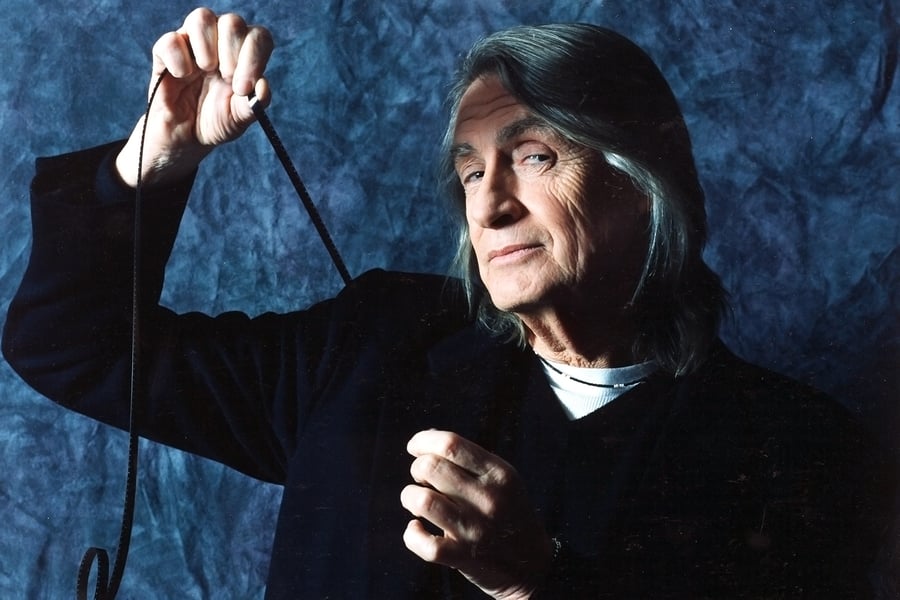Joel Schumacher, the director, screenwriter and costume designer with a wide-ranging filmography that includes St. Elmo’s Fire, The Lost Boys, several John Grisham movies and two Nineties Batman films, died Monday after a year-long battle with cancer, Variety reports. He was 80.
Schumacher’s publicist confirmed the filmmaker’s death, though did not offer any specifics on Schumacher’s cancer diagnosis. The publicist said he “passed away quietly” and “will be fondly remembered by his friends and collaborators.”
Schumacher spent five decades in Hollywood, an openly gay man who moved up the ranks from costume designer to screenwriter to director. He scored a number of box office hits, but his films — most notably 1995’s Batman Forever and 1997’s particularly reviled Batman & Robin — were frequently torn apart by critics. The latter gained added notoriety for its introduction of a new Batsuit that prominently featured rubber nipples, which Schumacher acknowledged years later would be a cornerstone of his legacy. “Such a sophisticated world we live in where two pieces of rubber the size of erasers on old pencils, those little nubs, can be an issue,” he told Vice in 2017. “It’s going to be on my tombstone, I know it.”
But Schumacher also cultivated plenty of admirers and fans. Actor Alex Winter, who starred in Schumacher’s 1987 vampire flick The Lost Boys, said in a tribute to the director, “Joel was a creative genius; a master at clothing design, costuming, writing and of course directing. Joel saw something in me as an actor I didn’t see and gave me the confidence and space to pursue it. Unfairly savaged by critics his entire career, his great work will live on.”
https://twitter.com/Winter/status/1275125980869189632
Schumacher was born in New York City in 1939 and studied design at Parsons and the Fashion Institute of Technology. He started out in the fashion world, decorating window displays at the famed Henri Bendel store in New York City, and working with people like Revlon founder Charles Revson and the designer Halston.
When Schumacher eventually left fashion for Hollywood, he put his original trade to good use, designing costumes for various films throughout the Seventies, including Play It As It Lays, Blume in Love, Sleeper and Interiors. He also started writing screenplays during this time, including the hit 1976 comedy Car Wash and the 1978 adaptation of the musical The Wiz.
Love Music?
Get your daily dose of everything happening in Australian/New Zealand music and globally.
In 1981, Schumacher made his directorial debut with, The Incredible Shrinking Woman, a sci-fi comedy twist on Richard Matheson’s 1959 novel, The Shrinking Man, starring Lily Tomlin. Fitting the pattern that would define his career, the film was a financial success but a flop with critics. In a 2018 interview, even Schumacher was rather frank about the project’s quality.
“I was shocked at how untalented I was,” Schumacher said. “It’s a delusion to think that just because you want to do something all your life that you have a knack for it. I realized then that I had two choices: I could either leave the business and move to Australia, or I could start going to film classes and get better. The fact is, I was so bad, I could only get better.”
Schumacher’s true breakout came a few years later in 1985, when he wrote and directed St. Elmo’s Fire, the classic post-grad flick with the Brat Pack cast, including Rob Lowe, Demi Moore and Judd Nelson. Two years later, he wrote and directed The Lost Boys, a film about a group of teen vampires that marked the first film to star both Corey Feldman and Corey Haim, effectively launching the heartthrob duo known as “the Coreys.”
Over the next few years, Schumacher continued to show his versatility, helming a rom-com like Cousins one year, a psychological horror like Flatliners the next, and a romantic drama like Dying Young after that. Between 1994 and 1997, Schumacher put together a particularly unique run, even for him: He directed a pair of John Grisham legal thrillers — 1994’s The Client and 1996’s A Time to Kill — while taking over the Batman franchise from Tim Burton and turning in Batman Forever and Batman & Robin. The Grisham films earned Schumacher some of the best reviews of his career, while Batman & Robin picked up 11 Razzie Awards; all four films made loads of money.
In that 2017 interview with Vice, Schumacher said the bad reviews for Batman & Robin didn’t haunt him, but the project forced him to reconsider why he wanted to be a filmmaker. “It was because I grew up behind a movie theater when I was a kid, before television,” he said. “I loved movies and wanted to tell those stories. So I said, let’s get back down to basics, let’s get out of here.”
Over the next few decades, Schumacher directed a characteristically diverse mix of films, though there were a few more flat-out flops (Flawless, Tigerland) to go along with hits like the 2003 thriller Phone Booth or his 2004 adaptation of The Phantom of the Opera. During his career, Schumacher also directed a handful of music videos, including the Smashing Pumpkins’ “The End is the Beginning is the End,” INXS’ “Devil Inside” and Seal’s “Kiss From a Rose.” In 2011, he directed his last film Tresspass, though he would later direct two episodes of Netflix’s political thriller House of Cards.
In an extensive interview with New York Magazine last year, Schumacher spoke gleefully about the disparity between his reviews and box office numbers throughout his career. “It is the greatest thing that can happen to you,” he said. “Because it reminds you who you made the movie for. And if you want to make movies just for the critics, they will fuck you anyway… My success annoyed a lot of people always. Maybe they thought I didn’t deserve it. You’re going to be burned for even doing an interview with me.”



































